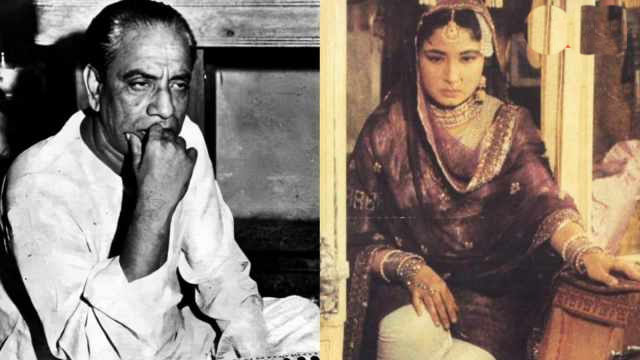Daijiworld Media Network – Mumbai
Mumbai, Nov 4: Among India’s greatest film music composers, Ghulam Mohammed’s melodies live on, but his name has faded from public memory. The man behind timeless classics of Pakeezah and Mirza Ghalib lived a life of struggle and passed away before witnessing the success of his masterpieces.
Born in 1905 in Naal village of Bikaner, Ghulam Mohammed was trained by his father, noted tabla player Nabi Baksh. Gifted with mastery over the dholak, tabla, and pakhawaj, he impressed audiences across princely states — even receiving a gilded sword from a Junagadh minister for his skill.

He moved to Bombay in 1924, surviving on a modest salary of Rs 100 per month as a tabla player before assisting the legendary Naushad for over a decade. His independent debut came in 1947 with Tiger Queen, followed by memorable works in Pardes, Amber, Ajeeb Ladki, and Dil-E-Nadaan.
National fame came with Mirza Ghalib (1954), earning him the National Award for Best Music Direction. Its haunting ghazals — “Dil-E-Nadaan Tujhe Hua Kya Hai”, “Aah Ko Chahiye Ek Umar Asar Hone Tak” — even won the praise of then–Prime Minister Jawaharlal Nehru.
Yet, success brought little comfort. Work offers dwindled, and financial struggles persisted. His final project, Pakeezah, began in 1962 under Kamal Amrohi. Ghulam composed a treasure of songs, but the film’s delayed release took its toll. He passed away in 1968, years before Pakeezah’s 1972 release, when his mentor Naushad completed the background score.
When Pakeezah finally hit theatres, its songs — “Chalte Chalte”, “Inhin Logon Ne”, “Mausam Hai Aashiqana” — immortalised his genius.
In a moving tribute, actor Pran declined his 1972 Filmfare Award for Be-Imaan, saying Ghulam Mohammed truly deserved the honour for Pakeezah.
Though he died in obscurity, Ghulam Mohammed’s music continues to echo through generations — a reminder of a maestro who composed beauty amid hardship.